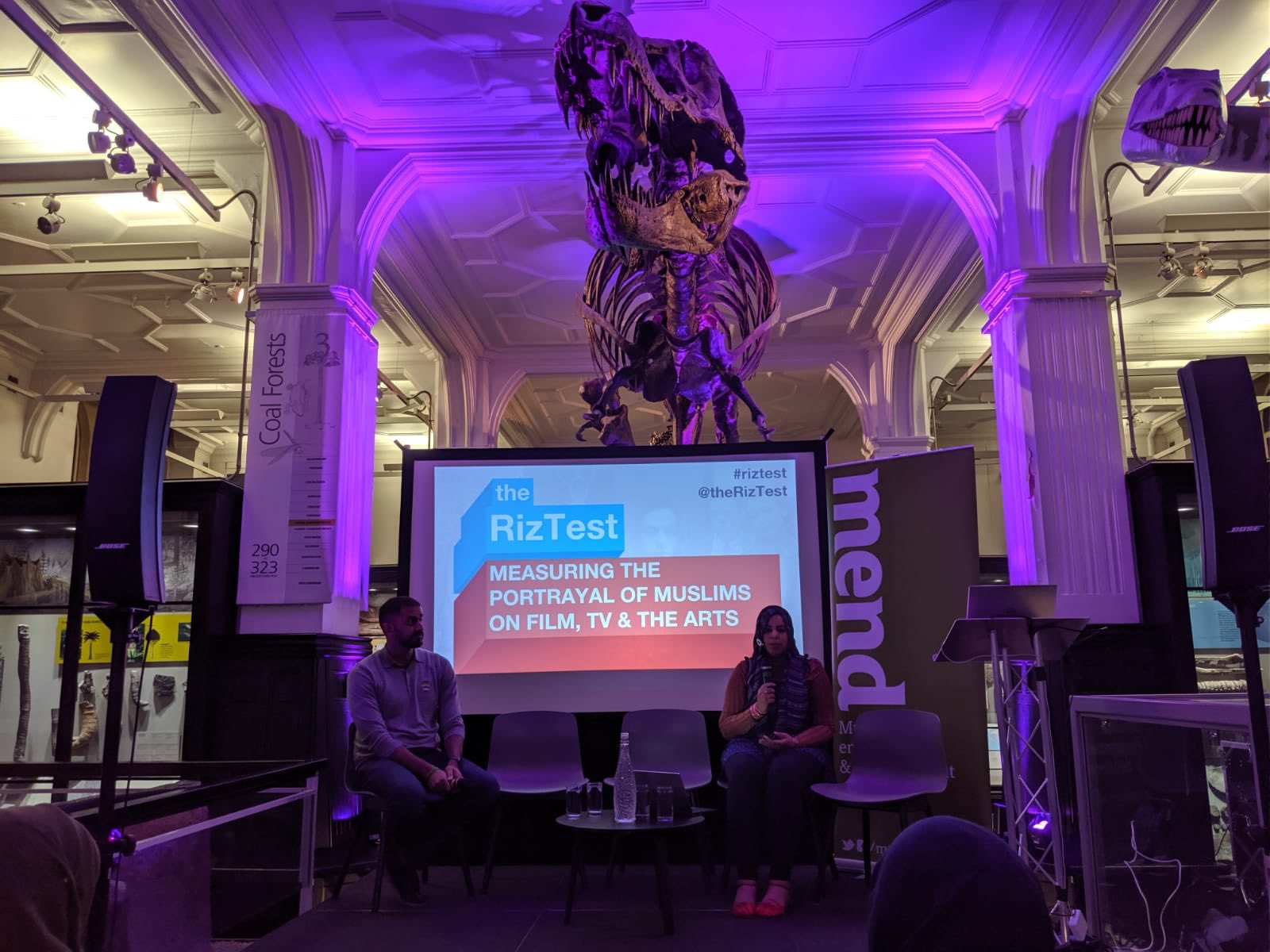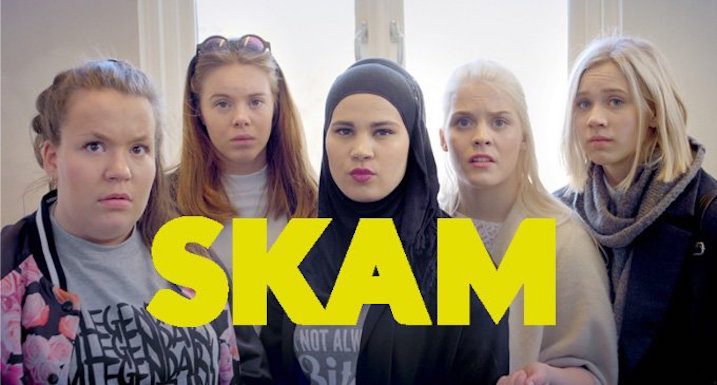The Riz Test tackles Muslims representation in the media

As part of Islamophobia Awareness Month, UK NGO MEND (Muslim Engagement and Development) put together an event earlier this week at the Museum of Manchester about Muslims depiction in the media. It's a big issue within the Muslim society, and one that they feel needs to be addressed more often. That's why in 2018, two film fanatics Shaf and Sadia set up what is known as the Riz Test- a 5 step exploration of what makes a media product go against the real image of Muslims, and feeds the false stereotypes surrounding this group. Inspired by and named after Muslim British Pakistani actor Riz Ahmed's profound Channel4Diveristy speech in the House of Commons, this test analyses an apparent Muslim character (either by language, clothing, ethnicity etc), within a product.
Similar to the Bechdel test, which focuses on women's representation in the media, and the Ava DuVernay test which monitors 'racial diversity in Hollywood' (as put by the Guardian) especially of the African American community, the Riz test also follows similar suit. Other inspirations include Professor of English Edward Said, Professor of Film Studies Richard Dyer and author of many renowned books Dr Jack Shaheen, amongst others.
The success or failure of this test is dependent on whether they possess any of the following five features:
1. Talking about, the victim of, or the perpetrator of terrorism?
2. Presented as irrationally angry?
3. Presented as superstitious , culturally backwards or anti modern?
4. Presented as a threat to a Western way of life?
5. If the character is male, is he presented as misogynistic. Or if female is she presented as oppressed?
So let's put some films and TV shows to the Riz Test, as was done at the event, by a group of female Muslim high school students, who conducted research on the following products:
1. Ali's Wedding- FAIL

An Australian romantic comedy that follows the life of Muslim man, who is torn between following through his arranged marriage, or alternatively chasing after the girl he really loves. The story line is more or less a typical romcom, and there's no issue there. However, there are certain things said within the film that allow watchers who are not familiar with Muslims to believe media stereotypes. For example, the main character Ali, played by Osama Sami says,'Hollywood always needs people like us to play the terrorists.' Does that mean Muslims see themselves the same way the rest of the world see them? Do they too believe the media's incorrect exaggerated spiralling lies? For some Muslims, especially the younger generations, this negative image of themselves being terrorists has been present even before they were born, so they've grown up with nothing other than that version.
Another example, is when the girl Ali likes, Dianne, played by Helena Sawires says,'My father would have a heart attack if he knew I play basketball.' This feeds the narrative of Muslim men, fathers and brothers being oppressive and overly strict towards their daughters and sisters. It implies to audiences that Muslim women aren't able to have hobbies like playing sports or instruments, or anything remotely free and enjoyable, where they are pursuing their talents. Talk to many Muslim girls, and they'll tell you they're part of their school football team, or they enjoy boxing, like Ruqsana Begum, who is the first female British Muslim kickboxing champion.
3. Bodyguard- FAIL

The well known hit BBC production Bodyguard also fails the Riz Test, and in the first 12 minutes too! From a general perspective, it's a pretty gripping action packed show, belonging to more than just one genre. But the antagonist is a Muslim. They could have easily used someone without a religious affiliation, but the fact that the bomber is a Muslim was made crystal clear from the very start. At first they were seen as a threat, then as a victim, and at the end as evil. We see the depiction of Muslims throughout history more or less follow the same theme, of negativity and danger. But there have been additions to this description. Post 9/11, the image of Muslims changed slightly. They were still seen as a threat, but now a new wave came in, of them being victims of discrimination, like in 24 and Law and Order. Bodyguard also displays this. If we look at the top 10 viewing countries of Bodyguard, they're all non Muslim countries, including America, the UK, Canada and Australia. So even if it's just a short clip or a small conversation, what do watchers take away? Does it leave them with a better impression of Muslims, or does it continue to feed what the media has planted in their minds?
4. Skam- PASS

This Norwegian TV show however, does leave people with a good impression of Muslims. not as being overly religious, but simply ordinary. This show follows the lives of teenagers in high school, addressing prevalent issues the youth face, like self esteem and loneliness, whilst also tackling bigger topics like feminism and Islamophobia. The Muslim character in this show, Sana Bakkoush, played by Norwegian actress Iman Meskini, exhibits examples of Muslims, whilst at the same time debunks some ancient myths that need to be erased. The character makes it clear that wearing hijab is her own choice, and was not forced upon her by her male family, a belief that many Westerners still think to this day. It would be wrong to say that there haven't been cases in the past, where Muslim women have been forced to wear the hijab, but this has no correlation with the foundations of Islam, but rather the followers of Islam, who use backward parts of their cultures to control others. Another example in Skam, is when Sana is at a party with her friends. She needs to pray, so she goes to the bathroom and performs wudu (ablution) and then goes to a quiet room to pray. Her parents aren't there to supposedly 'force' her, her friends are too busy partying, and she doesn't have an oppressive husband, so who was it that coerced her to bow her head down in gratitude to God?

All in all, the Riz test is a practical way of keeping the right checks on the latest films. Researchers and media experts will come to the agreement that the media as a whole have always presented an inaccurate and over exaggerated representation of Muslims. Dr Jack Shaheen spent 40 years researching Muslim representation in American cinema and found it to be overwhelmingly negative.
Similarly, a statistic from Riz Ahmed's speech proves it to be needed. 'A billion Muslims were asked what are their biggest grievances, and number 2 was the depiction of Muslims in the media.' Everyone has their own opinion, some claiming it's all healthy satire whilst others take offence to the smallest comments. The truth is, most media products, in particular the comedy genre, somewhat require the inclusion of offensive mature jokes, and sometimes religion and culture is used to implement this. But the line must be drawn at some point, and where that line is drawn depends on each individuals own opinion. Muslims aren't asking for perfect characters who fast every day and spend all night in the mosque. Neither are they asking for extremist Jihadi fighters who live in Syria. What they're asking for is a realistic representation, that they can be ordinary and normal, like they're non Muslim colleagues, neighbours and classmates, whilst at the same time being Muslims, and sticking to their principles.
The Riz Test are always looking for new data, so the next time you watch a movie or TV show that has a Muslim character in it, be sure to keep an eye out for any of the five points. Here in this article only 3 examples were provided, with many more examples out there, not just British or American, but also European and Bollywood, which is a completely other world that needs to be explored.
You can submit a review to hello@riztest.com, and give your own verdict as to whether it passes or fails the test. To find out more head to the official website riztest.com.

Comments
Post a Comment